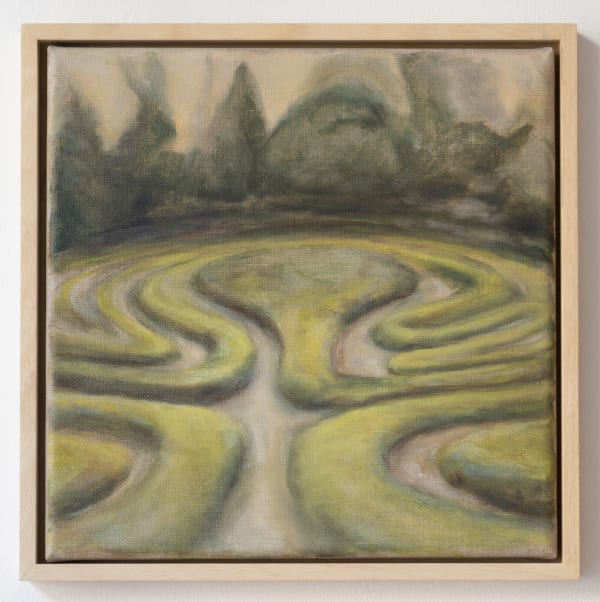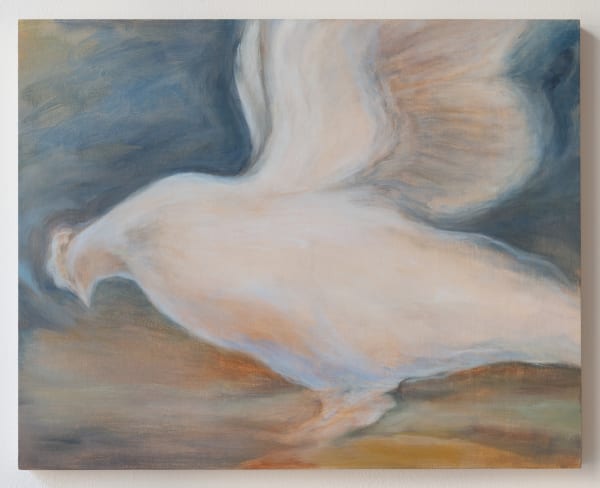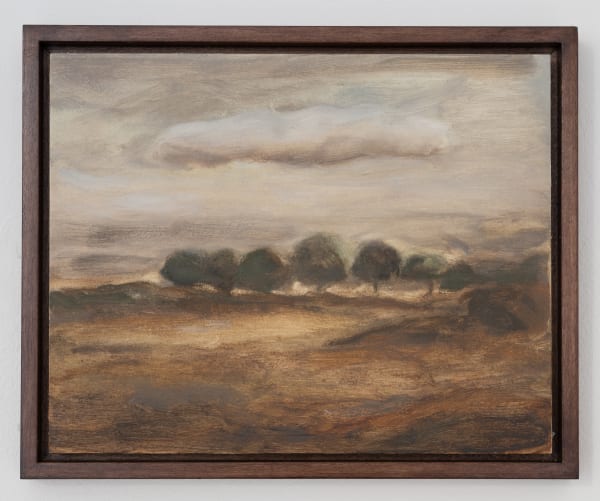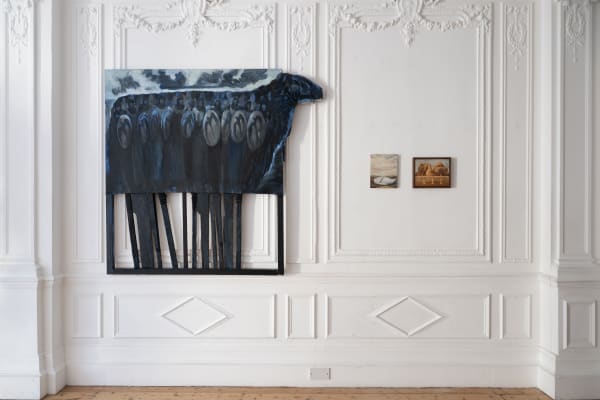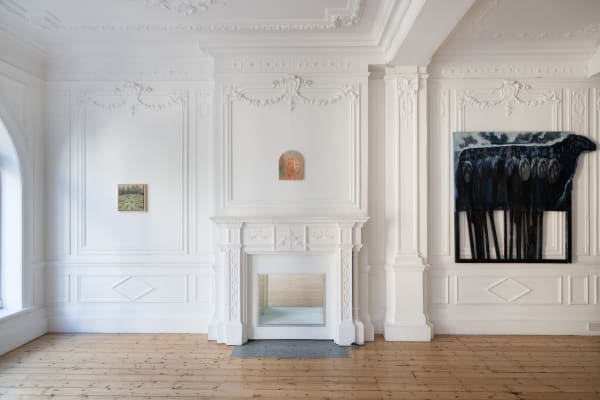The Language of Birds: Hattie Landells and Hugo Winder-Lind
General Assembly is pleased to present The Language of Birds, a two person exhibition of
works by Hattie Landells and Hugo Winder-Lind. In the exhibition, Landells and Winder-Lind
present a series of paintings that contemplate the manmade and natural worlds, wildness and domesticity, illusion and reality, and the blurry edges in between. The works in this exhibition can be viewed as a dialogue, a call and response between the two artists’ viewpoints.
The exhibition’s title is borrowed from a mystical poem by Sufi poet Farid ud-Din Attar that
recounts a journey taken by 100 birds to find their spiritual home. Indeed, the idea of a
"language of birds" is found in literature across cultures, religious traditions, and time. Often,
this language alludes to something sacred, a shorthand for divine communication or mystical
knowledge. It is a universal language, but not one that is universally understood, and the
works presented in this exhibition explore, and act as kind of tuning fork into this mysterious
language.
For their parts, Landells and Winder-Lind use the land and connection with the natural world
as starting points to guide their journey of understanding. Their dramatic skyscapes, sensuous hills, and expressive trees are romantic and reverential. Within these scenes Landells and Winder-Lind find patterns – a sleeping swan mimics undulating landscape, and a sheep floats skyward and joins the puffy clouds. The viewer is left to reflect on if these echoing forms allude to a kind of natural empathy, divine trickery, or shared source code.
The echoes in form mirrors the artists’ deepening dialogue. Areas where their practices
reflected became points for closer exploration. Their often contrasting practices – Landells
working at a contemplative pace, Winder-Lind more furiously, Landells’ work emerging from a more micro exploration, Winder-Lind’s more macro – proved the perfect point/counter point to challenge one another, and probe these questions more deeply.
In this depth, Landells and Winder-Lind find a oneness between the elements. In his work “We Heard Them Talking”, Winder-Lind depicts a band of knights forming the body of a ram.
Similarly, in Landells’ work “Green Fingers”, trees spring forth from human figures as if they
were one being. These works express that man, nature and animal do not merely echo but
actually comprise one another. Each is an integral part of the other, only varying in degrees.
Perhaps this points to the underlying difficulty of translating the language of birds. How can
one translate something that they themselves are an integral part of? How can you see the
totality of something that you are within? In translating such a language, success is measured not by the accuracy of your words, but by your ability not to speak at all.

